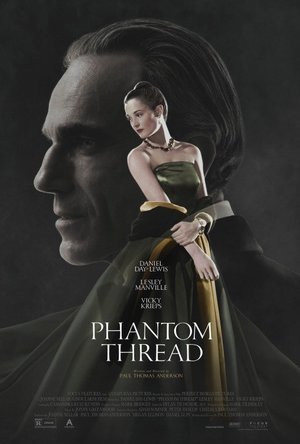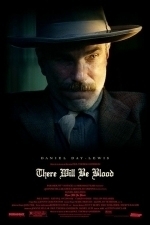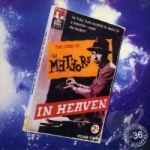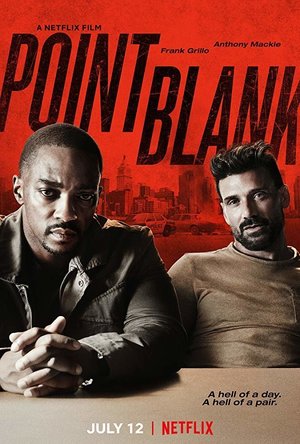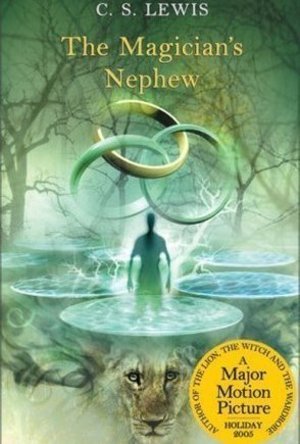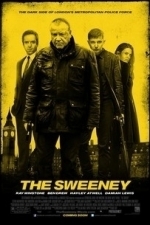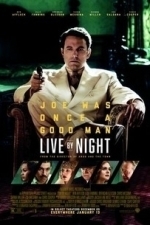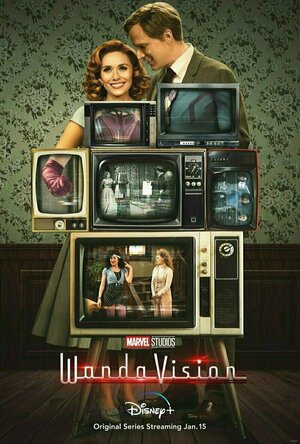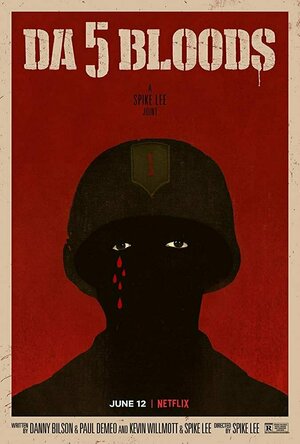Search
Search results
Awix (3310 KP) rated Phantom Thread (2017) in Movies
Feb 9, 2018 (Updated Feb 9, 2018)
Not a Fun Guy to Be With
Yet another reissue of the controversial 1999 movie, but this time George Lucas has taken out all the stuff with taxation and Jar Jar Binks in favour of fashion design... ha ha, I jest.
Daniel Day-Lewis plays an obsessional creative genius who throws himself completely into his work and is very demanding of everyone around him, and is occasionally prone to hallucinating dead family members (so perhaps this role was less of a stretch for him than many).
Initially this comes across as a slightly so-what romantic drama about the relationship between a powerful, privileged man and a much younger woman, with him as a manipulative user and her, essentially, as a victim, but it eventually turns into a dark and even slightly twisted tale of what it sometimes takes to make a relationship work.
Day-Lewis is good, obviously, but so is Vicky Krieps as the woman in his life; presumably it's only her obscurity that's kept her from getting awards nods as she is really as good as he is.
Probably not for everyone, but Paul Anderson's most satisfying and accessible film for some years.
Daniel Day-Lewis plays an obsessional creative genius who throws himself completely into his work and is very demanding of everyone around him, and is occasionally prone to hallucinating dead family members (so perhaps this role was less of a stretch for him than many).
Initially this comes across as a slightly so-what romantic drama about the relationship between a powerful, privileged man and a much younger woman, with him as a manipulative user and her, essentially, as a victim, but it eventually turns into a dark and even slightly twisted tale of what it sometimes takes to make a relationship work.
Day-Lewis is good, obviously, but so is Vicky Krieps as the woman in his life; presumably it's only her obscurity that's kept her from getting awards nods as she is really as good as he is.
Probably not for everyone, but Paul Anderson's most satisfying and accessible film for some years.
Phillip Youmans recommended There Will Be Blood (2007) in Movies (curated)
Jason Williamson recommended In Heaven by The Meteors England in Music (curated)
Darren (1599 KP) rated Point Blank (2019) in Movies
Jul 25, 2019
Story: Point Blank starts when emergency room nurse Paul (Mackie) is preparing to have his first child with his wife Taryn (Parris), she is due within weeks, but she gets kidnapped by Mateo (Cooke) who wants Paul to help his injured brother Abe (Grillo) escape from the emergency room after being accused of murdering the DA.
Paul and Abe go on the run with LT Lewis (Harden) tracking them down as we see just who was really behind the murder of the DA.
Thoughts on Point Blank
Characters – Paul is an emergency room nurse, he is married and about to start his family, his life is exactly where he wants it. His life takes a big change one this day when he gets forced to help a murder suspect escape from the hospital to save his pregnant wife, meaning he will need to start breaking the law to save her. Abe is the gun for hire that has been injured in the incident, he is the prime suspect and is being set up, where his brother is trying to help him escape, he is street smart and has connections in the criminal world which will help him stay ahead of the law. LT Lewis is the one trying to track down the pair trying to put away the person that killed the DA. Mateo is the brother of Abe that has gone to the extremes to try and get his brother out of custody.
Performances – Anthony Mackie and Frank Grillo do everything they can with this film, Grillo is starting make a name for himself in the trashing action films now, where he can play the bad boy with ease, Mackie doesn’t do much that you wouldn’t expect from him here though. Marcia Gay Harden gives us the basic cop figure, while Christian Cooke completes the main cast with a basic enough performance.
Story – The story here follows an emergency nurse that must help a murder suspect to save his kidnapped wife. This is a basic story which I always say is all you need for action at times, this is a remake of a French film, but we are lacking that one thing a good action film needs a villain that feels like a threat, we do get many suspects to who the villain might be because it is clear that Abe never committed a crime. We get moments of the unlikely couple needing to work together only for them to not have enough conflict about what is happening. This is basic storytelling that just never gets intense enough to the level it could do.
Action – The action involved in the film is the highlight of the film, even if a lot is basic, it does bring the film to life with the car chases involved.
Settings – The film is set in a big city which does help us understand how many people can be getting crimes done with ease.
Scene of the Movie – Big D
That Moment That Annoyed Me – Not enough villain potential.
Final Thoughts – This is a mostly by the book action film that just doesn’t get going.
Overall: Forgettable Action Film.
Paul and Abe go on the run with LT Lewis (Harden) tracking them down as we see just who was really behind the murder of the DA.
Thoughts on Point Blank
Characters – Paul is an emergency room nurse, he is married and about to start his family, his life is exactly where he wants it. His life takes a big change one this day when he gets forced to help a murder suspect escape from the hospital to save his pregnant wife, meaning he will need to start breaking the law to save her. Abe is the gun for hire that has been injured in the incident, he is the prime suspect and is being set up, where his brother is trying to help him escape, he is street smart and has connections in the criminal world which will help him stay ahead of the law. LT Lewis is the one trying to track down the pair trying to put away the person that killed the DA. Mateo is the brother of Abe that has gone to the extremes to try and get his brother out of custody.
Performances – Anthony Mackie and Frank Grillo do everything they can with this film, Grillo is starting make a name for himself in the trashing action films now, where he can play the bad boy with ease, Mackie doesn’t do much that you wouldn’t expect from him here though. Marcia Gay Harden gives us the basic cop figure, while Christian Cooke completes the main cast with a basic enough performance.
Story – The story here follows an emergency nurse that must help a murder suspect to save his kidnapped wife. This is a basic story which I always say is all you need for action at times, this is a remake of a French film, but we are lacking that one thing a good action film needs a villain that feels like a threat, we do get many suspects to who the villain might be because it is clear that Abe never committed a crime. We get moments of the unlikely couple needing to work together only for them to not have enough conflict about what is happening. This is basic storytelling that just never gets intense enough to the level it could do.
Action – The action involved in the film is the highlight of the film, even if a lot is basic, it does bring the film to life with the car chases involved.
Settings – The film is set in a big city which does help us understand how many people can be getting crimes done with ease.
Scene of the Movie – Big D
That Moment That Annoyed Me – Not enough villain potential.
Final Thoughts – This is a mostly by the book action film that just doesn’t get going.
Overall: Forgettable Action Film.
David McK (3721 KP) rated The Magician's Nephew (Chronicles of Narnia, #6) in Books
Jan 28, 2019
Chronologically the first Narnia book, this was actually the last book written in the series, and goes back to how the magical land of Narnia (going by publication date, first visited in [b: The Lion, the Witch and the Wardrobe|100915|The Lion, the Witch, and the Wardrobe (Chronicles of Narnia, #1)|C.S. Lewis|https://d.gr-assets.com/books/1353029077s/100915.jpg|4790821]) came to be.
As such, who says that the concept of prequels is a new invention??
Personally, I think I approached this from the wrong perspective: when I hear the word 'magician' mentioned (as in the title of the book) I tend to think either of the likes of Paul Daniels, or (going by literature) of Gandalf the Grey/White.
That, however, is not how the magician is portrayed here: rather than a benevolent, kindly old character, we instead have a selfish, greedy older man, who is responsible for sending the two children protagonists (Digory and Polly) into the magical woods between the worlds, and eventually into the land that will become Narnia.
If I'm honest, it's also not a story that I was overly familiar with: sure, I'd read (as a kid) that more famous previously mentioned entry and (more recently) have even watched a few of the movies, but this one? Not so much.
As such, who says that the concept of prequels is a new invention??
Personally, I think I approached this from the wrong perspective: when I hear the word 'magician' mentioned (as in the title of the book) I tend to think either of the likes of Paul Daniels, or (going by literature) of Gandalf the Grey/White.
That, however, is not how the magician is portrayed here: rather than a benevolent, kindly old character, we instead have a selfish, greedy older man, who is responsible for sending the two children protagonists (Digory and Polly) into the magical woods between the worlds, and eventually into the land that will become Narnia.
If I'm honest, it's also not a story that I was overly familiar with: sure, I'd read (as a kid) that more famous previously mentioned entry and (more recently) have even watched a few of the movies, but this one? Not so much.
Bob Mann (459 KP) rated Phantom Thread (2017) in Movies
Sep 29, 2021
“There’s an air of quiet death in this house”.
The alleged acting swan-song of Daniel Day-Lewis (“Lincoln“) sees him deliver a brilliantly intense portrayal of a maestro in his craft with all the quirks and egotistical faults that come with that position.
Reynolds Woodcock is the craftsman behind a world-renowned 1950’s fashion house, in demand from the elite classes and even royalty. He has a magnetic personality, is overtly self-confident, obsessive, a cruel bully and treats his girlfriends as chattels that he can tire of and dismiss from his life without a backward glance. Trying to keep the business and Reynolds on track, with ruthless efficiency, is his sister Cyril (Leslie Manville, “Maleficent“).
Looking for his next conquest during a trip to his seaside residence, he reels in blushing young waitress Alma (Vicky Krieps, “The Colony”). But he gets more than he bargains for.
This is a really exquisite and gentle film. Aside from some dubious fungi-related practices, there is no violence, no sex and – aside from about half a dozen well-chosen F-words – limited swearing (of which more below). This is a study of the developing relationship between the two protagonists, with little in the way of plot. Sounds dull? Far from it. This is two hours that flew by.
What it also features is (yet) another example of extremely strong women asserting their power. A scene (well trailed in Manville’s award snippets) where Cyril firmly puts Reynolds back in his box is brilliant: a real turning of tables with Woodcock meekly falling into line. And Alma makes for an incredibly rich and complicated character, one of the most interesting female roles I’ve seen this year so far.
It’s a stellar acting performance from Day-Lewis, and while Oldman fully deserves all of his award kudos for “Darkest Hour”, Day-Lewis delivers the goods without any of the make-up. It feels like Day-Lewis is a long way down the betting odds this year because “he always gets one”. He certainly gets my vote ahead of all of the other three nominees.
Kreips – not an actress I know – also brilliantly holds her own, and if it wasn’t such a strong female field this year she could well have been nominated.
Also worthy of note is the pervasive piano score by (suprisingly) Radiohead’s Jonny Greenwood. It’s really lovely and counterpoints the rest of the classical score nicely. Its BAFTA and Oscar nominations are both well deserved (though I would expect the Oscar to follow the BAFTA steer with “The Shape of Water“).
All in all, this is a real tour de force by writer/director Paul Thomas Anderson (“Inherent Vice”, “There Will Be Blood”). How much I enjoyed this film was a surprise to me, since I have no interest in the “fashion industry” (as my family will no doubt be quick to point out!) and I went to see this more out of ‘duty’ based on its Oscar buzz than because I really wanted to see it.
The big curiosity is why exactly the BBFC decided that this film was worthy of a 15 certificate rather than a 12A. Their comments on the film say “There is strong language (‘f**k’), as well as milder terms including ‘bloody’ and ‘hell’. Other issues include mild sex references and scenes of emotional upset. In one scene, a woman’s nipples are visible through her slip while she is measured for a dress.” For a 12A, the board say “The use of strong language (for example, ‘f***’) must be infrequent”. I didn’t count the f-words… but as I said I don’t think it amounts to more than a half-dozen. Is that “frequent”? And – SHOCK, HORROR… visible covered nipples you say?! Lock up your teenagers! When you look at the gentleness of this film versus the violence within “Black Panther”, you have to question this disparity.
Reynolds Woodcock is the craftsman behind a world-renowned 1950’s fashion house, in demand from the elite classes and even royalty. He has a magnetic personality, is overtly self-confident, obsessive, a cruel bully and treats his girlfriends as chattels that he can tire of and dismiss from his life without a backward glance. Trying to keep the business and Reynolds on track, with ruthless efficiency, is his sister Cyril (Leslie Manville, “Maleficent“).
Looking for his next conquest during a trip to his seaside residence, he reels in blushing young waitress Alma (Vicky Krieps, “The Colony”). But he gets more than he bargains for.
This is a really exquisite and gentle film. Aside from some dubious fungi-related practices, there is no violence, no sex and – aside from about half a dozen well-chosen F-words – limited swearing (of which more below). This is a study of the developing relationship between the two protagonists, with little in the way of plot. Sounds dull? Far from it. This is two hours that flew by.
What it also features is (yet) another example of extremely strong women asserting their power. A scene (well trailed in Manville’s award snippets) where Cyril firmly puts Reynolds back in his box is brilliant: a real turning of tables with Woodcock meekly falling into line. And Alma makes for an incredibly rich and complicated character, one of the most interesting female roles I’ve seen this year so far.
It’s a stellar acting performance from Day-Lewis, and while Oldman fully deserves all of his award kudos for “Darkest Hour”, Day-Lewis delivers the goods without any of the make-up. It feels like Day-Lewis is a long way down the betting odds this year because “he always gets one”. He certainly gets my vote ahead of all of the other three nominees.
Kreips – not an actress I know – also brilliantly holds her own, and if it wasn’t such a strong female field this year she could well have been nominated.
Also worthy of note is the pervasive piano score by (suprisingly) Radiohead’s Jonny Greenwood. It’s really lovely and counterpoints the rest of the classical score nicely. Its BAFTA and Oscar nominations are both well deserved (though I would expect the Oscar to follow the BAFTA steer with “The Shape of Water“).
All in all, this is a real tour de force by writer/director Paul Thomas Anderson (“Inherent Vice”, “There Will Be Blood”). How much I enjoyed this film was a surprise to me, since I have no interest in the “fashion industry” (as my family will no doubt be quick to point out!) and I went to see this more out of ‘duty’ based on its Oscar buzz than because I really wanted to see it.
The big curiosity is why exactly the BBFC decided that this film was worthy of a 15 certificate rather than a 12A. Their comments on the film say “There is strong language (‘f**k’), as well as milder terms including ‘bloody’ and ‘hell’. Other issues include mild sex references and scenes of emotional upset. In one scene, a woman’s nipples are visible through her slip while she is measured for a dress.” For a 12A, the board say “The use of strong language (for example, ‘f***’) must be infrequent”. I didn’t count the f-words… but as I said I don’t think it amounts to more than a half-dozen. Is that “frequent”? And – SHOCK, HORROR… visible covered nipples you say?! Lock up your teenagers! When you look at the gentleness of this film versus the violence within “Black Panther”, you have to question this disparity.
JT (287 KP) rated The Sweeney (2012) in Movies
Mar 10, 2020
Nick Love’s take on the ’70s TV cop show of the same name packs every bit a hard knuckled punch as you would expect it to. The director of such films as The Football Factory and The Business even manages to stay clear of Danny Dyer and cast a slick and talented bunch of individuals, led by Ray Winstone.
Regan (Winstone) and Carter (Drew) are a pair of detectives on the flying squad, they don’t play nice or appreciate authority and when it comes to nicking thieves they go in armed with an array of unique weapons including pick axe handles. Quite simply put they “do the things you can only dream of”.
The plot is a little thin on the ground at times, and centres on former villain Allen (Paul Anderson) making a return to Regan’s patch, of which he doesn’t take too kindly when he has to let Allen go after having pulled him in for questioning in relation to a bank job that ends with an execution.
Regan himself is under the watchful eye of not just his boss Frank Haskins (Damian Lewis) but internal watchdog Ivan Lewis (Steven Mackintosh) who has a greater reason than anyone to note Regan’s movements, with Regan sharing more than coffee with Lewis’s wife Nancy.
The action is well choreographed from the opening heist to a shootout through Trafalgar Square (of which annoyingly they can only hit innocent bystanders), the film’s climactic car chase is a bit of a let down however. After all that proceeded before it I was expecting something a little better than a blast around a caravan park.
The chemistry between Regan and Carter is good, a father and son styled relationship is pushed to breaking point at times, but beneath the hardened exterior lies a mutual respect for each other that is followed through to the very end.
Winstone looks battle weary and sounds more cockney than ever (if that could be at all possible), he’s like a bulldog that won’t let go of a bone or come when called. Drew is a fresh casting choice and I enjoyed his performance in Harry Brown, but here he seems to deliver his lines in a slow and laborious manner.
The sweeping landscape of London is painted in cold grey light, panels of sun laying across pavements and car windows trying to brighten the mood. It’s a violent mood, twinned with colourful dialogue that is more than to be expected. It’s a decent enough effort and certainly Love’s best film to date.
Regan (Winstone) and Carter (Drew) are a pair of detectives on the flying squad, they don’t play nice or appreciate authority and when it comes to nicking thieves they go in armed with an array of unique weapons including pick axe handles. Quite simply put they “do the things you can only dream of”.
The plot is a little thin on the ground at times, and centres on former villain Allen (Paul Anderson) making a return to Regan’s patch, of which he doesn’t take too kindly when he has to let Allen go after having pulled him in for questioning in relation to a bank job that ends with an execution.
Regan himself is under the watchful eye of not just his boss Frank Haskins (Damian Lewis) but internal watchdog Ivan Lewis (Steven Mackintosh) who has a greater reason than anyone to note Regan’s movements, with Regan sharing more than coffee with Lewis’s wife Nancy.
The action is well choreographed from the opening heist to a shootout through Trafalgar Square (of which annoyingly they can only hit innocent bystanders), the film’s climactic car chase is a bit of a let down however. After all that proceeded before it I was expecting something a little better than a blast around a caravan park.
The chemistry between Regan and Carter is good, a father and son styled relationship is pushed to breaking point at times, but beneath the hardened exterior lies a mutual respect for each other that is followed through to the very end.
Winstone looks battle weary and sounds more cockney than ever (if that could be at all possible), he’s like a bulldog that won’t let go of a bone or come when called. Drew is a fresh casting choice and I enjoyed his performance in Harry Brown, but here he seems to deliver his lines in a slow and laborious manner.
The sweeping landscape of London is painted in cold grey light, panels of sun laying across pavements and car windows trying to brighten the mood. It’s a violent mood, twinned with colourful dialogue that is more than to be expected. It’s a decent enough effort and certainly Love’s best film to date.
Gareth von Kallenbach (980 KP) rated Live By Night (2017) in Movies
Jul 12, 2019
I’m a sucker for a Prohibition-set yarn. It’s a fascinating period in history and typically yields excellent filmmaking with gritty, no-nonsense performances, gorgeous production design and hard-boiled action. It was De Palma’s The Untouchables that hooked me. Some would call it a guilty pleasure; and sure, Morricone’s score is a little over-the-top, De Niro is more caricature than character actor as Al Capone and I’m not going to argue that Connery’s Oscar was a “sympathy vote”, but it’s got everything I mentioned above in spades and for me it’ll always be the high benchmark of the Prohibition era gangster epic. Ben Affleck’s fourth turn as director has done nothing to change my position on that.
Live by Night is an uninspired mess, from voice-over laden start to disastrously predictable end, bringing nothing new or exciting to the table. Beat for beat, its weak script moves from one sigh-inducing cliché to another, reaching clumsily for moments of high emotion that ring hollow and false. If anyone needs any further proof that Matt Damon did all the heavy lifting on the script for Good Will Hunting, they need look no further. It feels wrong to come down so hard on Affleck after his back-to-back successes as a director, but this is more akin to the first work of a blundering novice, and also certainly not what we’ve come to expect of a Dennis Lehane adaptation (see Mystic River, Shutter Island and Affleck’s own incredible directorial debut, Gone Baby Gone). His decision to wear so many hats on this project, producing, directing, sole screenwriter and lead actor, has to be the reason for this stumble. The script desperately needed another set of eyes and the part of Joe Coughlin was clearly written for someone younger and more capable of performing with the subtlety needed to play someone who has to traverse the number of moral dilemmas he’s faced with. Hopefully, this inevitable failure will be what convinces Affleck that his place should be behind the camera directing other people’s scripts and guiding other people’s performances.
Speaking of the performances, there is a massive curve in this collection of acting that swings wildly from the cartoonish to the nuanced. To start with, we have Matthew Maher as a KKK member out for his cut and Robert Glenister as an Irish mob boss, both of whom are supposed to be playing dangerous and threatening but can’t do any better than laughable and two-dimensional. Then there’s Chris Messina and Affleck himself as the hoods on the rise, their chemistry is ill-advised at best as they both seem to think they’re in a buddy comedy as opposed to a serious piece of gangster melodrama A favorite of mine, Brendan Gleeson, sadly leaves the screen within the first twenty minutes and that left me with only the inimitable Chris Cooper to look forward to. The subplot involving him and Elle Fanning, as his born-again daughter speaking out against Coughlin’s sinful ways is not without problems of its own, but at least they sell it. That should be no surprise on Cooper’s part, but now between this and The Neon Demon last summer; Fanning is firmly on my radar as one to watch. My hope was that we were going to get some tremendous battle of wills between her and Affleck’s character akin to Paul Dano and Daniel Day-Lewis’ conflict in There Will Be Blood, but that was definitely asking too much. Fanning’s role, like Gleeson’s, is unfortunately cut short just as it gets good.
I guess The Untouchables is starting to sound less like a guilty pleasure and more like a masterpiece when compared to this regrettable misfire.
Live by Night is an uninspired mess, from voice-over laden start to disastrously predictable end, bringing nothing new or exciting to the table. Beat for beat, its weak script moves from one sigh-inducing cliché to another, reaching clumsily for moments of high emotion that ring hollow and false. If anyone needs any further proof that Matt Damon did all the heavy lifting on the script for Good Will Hunting, they need look no further. It feels wrong to come down so hard on Affleck after his back-to-back successes as a director, but this is more akin to the first work of a blundering novice, and also certainly not what we’ve come to expect of a Dennis Lehane adaptation (see Mystic River, Shutter Island and Affleck’s own incredible directorial debut, Gone Baby Gone). His decision to wear so many hats on this project, producing, directing, sole screenwriter and lead actor, has to be the reason for this stumble. The script desperately needed another set of eyes and the part of Joe Coughlin was clearly written for someone younger and more capable of performing with the subtlety needed to play someone who has to traverse the number of moral dilemmas he’s faced with. Hopefully, this inevitable failure will be what convinces Affleck that his place should be behind the camera directing other people’s scripts and guiding other people’s performances.
Speaking of the performances, there is a massive curve in this collection of acting that swings wildly from the cartoonish to the nuanced. To start with, we have Matthew Maher as a KKK member out for his cut and Robert Glenister as an Irish mob boss, both of whom are supposed to be playing dangerous and threatening but can’t do any better than laughable and two-dimensional. Then there’s Chris Messina and Affleck himself as the hoods on the rise, their chemistry is ill-advised at best as they both seem to think they’re in a buddy comedy as opposed to a serious piece of gangster melodrama A favorite of mine, Brendan Gleeson, sadly leaves the screen within the first twenty minutes and that left me with only the inimitable Chris Cooper to look forward to. The subplot involving him and Elle Fanning, as his born-again daughter speaking out against Coughlin’s sinful ways is not without problems of its own, but at least they sell it. That should be no surprise on Cooper’s part, but now between this and The Neon Demon last summer; Fanning is firmly on my radar as one to watch. My hope was that we were going to get some tremendous battle of wills between her and Affleck’s character akin to Paul Dano and Daniel Day-Lewis’ conflict in There Will Be Blood, but that was definitely asking too much. Fanning’s role, like Gleeson’s, is unfortunately cut short just as it gets good.
I guess The Untouchables is starting to sound less like a guilty pleasure and more like a masterpiece when compared to this regrettable misfire.
Sarah (7800 KP) rated WandaVision in TV
Mar 7, 2021
A welcome return to the MCU
WandaVision is the latest Marvel series to hit the small screen, arriving in a flood of hype as the first official series to tie in with the rest of the MCU. Initially I hadn’t been interested in this after struggling to enjoy previous series, however after discovering that everyone I know was watching this, FOMO and the fact that we haven’t had a new MCU release since Phase 3 wrapped up with 2019’s Spider-Man: Far From Home, has prompted me to give this a go. And I’m rather glad I did.
WandaVision is set not long after the events of Endgame, and follows Wanda Maximoff (Elizabeth Olsen) and Vision (Paul Bettany) as they live an idyllic suburban life in the small town of Westview. However all is not as it seems; Wanda and Vision appear to be starring in their own 1950s style sitcom, as a odd couple with superpowers trying to blend in with the neighbours, including nosy Agnes (Kathryn Hahn) and committee leader Dotty (Emma Caulfield). Strange things soon start happening, and as Wanda and Vision become increasingly confused and suspicious about their new life, outside of Westfield agent Jimmy Woo (Randall Park), Dr Darcy Lewis (Kat Dennings) and Captain Monica Rambeau (Teyonah Parris) are also trying to figure out what’s going on.
Setting WandaVision in the style of various popular sitcoms from the 1950s onwards is a genius move. BeWitched, I Love Lucy, Malcolm in the Middle and Modern Family to name but a few of the obvious influences on show here, and this changing sitcom style really works and blends very well with the super powered action we know and love from the MCU. I’ll admit that I’m not a massive fan of sitcoms in general and my knowledge of older ones pre-1990 is limited at best, however even I could appreciate the love and care that has gone in to crafting this. It looks amazing and feels so authentic, from everything to the set design, costumes and change in aspect ratio.
It is of course helped by the stellar performances by Elizabeth Olsen. In the MCU so far Wanda has been rather sidelined and Olsen has been given little chance to shine. However she is undoubtedly the star of WandaVision and has been given ample opportunity to show off her versatility and talents, and she certainly does. We see a side of Wanda we’ve never seen before and Olsen’s ability to transform into each decade’s sitcom character is brilliant to watch. It’s a shame then that Bettany’s Vision doesn’t quite match up. No matter the decade, Vision never really seems to change much and while he is funny on occasion, I’m not entirely convinced that seeing more of Vision is a good thing. He’s always been the aloof synthezoid and this may have made him a little too ‘human’. However that said, it was still nice to see a lot more of Bettany than we have done in a while.
Once you get over the sitcom styling, the first couple of episodes are quite slow and had it continued in this vein I may have struggling to keep interested. However in typical Marvel style, it soon picks up and immerses us into the full MCU experience I was expecting. While I don’t want to say much about the plot, from episode 3 onwards I was hooked and the story never felt drawn out, and this wasn’t just due to the short half hour episodes. Unravelling the world of WandaVision was hugely enjoyable and one particular character reappearance in episode 5 had me almost squealing in geeky happiness. The only thing WandaVision is really lacking is the humour and camaraderie that have made the rest of the MCU films into what we love best. Yes there is humour and fun, but this mostly comes from Woo and Darcy, and I think it’s noticeable that the funnier Avengers are missing.
For me, WandaVision isn’t perfect however it was still hugely enjoyable and has definitely given me a new found appreciation for Wanda as a character. And mor important of all, it’s filled a rather large Marvel shaped hole brought on by coronavirus. Bring on The Falcon and the Winter Soldier.
WandaVision is set not long after the events of Endgame, and follows Wanda Maximoff (Elizabeth Olsen) and Vision (Paul Bettany) as they live an idyllic suburban life in the small town of Westview. However all is not as it seems; Wanda and Vision appear to be starring in their own 1950s style sitcom, as a odd couple with superpowers trying to blend in with the neighbours, including nosy Agnes (Kathryn Hahn) and committee leader Dotty (Emma Caulfield). Strange things soon start happening, and as Wanda and Vision become increasingly confused and suspicious about their new life, outside of Westfield agent Jimmy Woo (Randall Park), Dr Darcy Lewis (Kat Dennings) and Captain Monica Rambeau (Teyonah Parris) are also trying to figure out what’s going on.
Setting WandaVision in the style of various popular sitcoms from the 1950s onwards is a genius move. BeWitched, I Love Lucy, Malcolm in the Middle and Modern Family to name but a few of the obvious influences on show here, and this changing sitcom style really works and blends very well with the super powered action we know and love from the MCU. I’ll admit that I’m not a massive fan of sitcoms in general and my knowledge of older ones pre-1990 is limited at best, however even I could appreciate the love and care that has gone in to crafting this. It looks amazing and feels so authentic, from everything to the set design, costumes and change in aspect ratio.
It is of course helped by the stellar performances by Elizabeth Olsen. In the MCU so far Wanda has been rather sidelined and Olsen has been given little chance to shine. However she is undoubtedly the star of WandaVision and has been given ample opportunity to show off her versatility and talents, and she certainly does. We see a side of Wanda we’ve never seen before and Olsen’s ability to transform into each decade’s sitcom character is brilliant to watch. It’s a shame then that Bettany’s Vision doesn’t quite match up. No matter the decade, Vision never really seems to change much and while he is funny on occasion, I’m not entirely convinced that seeing more of Vision is a good thing. He’s always been the aloof synthezoid and this may have made him a little too ‘human’. However that said, it was still nice to see a lot more of Bettany than we have done in a while.
Once you get over the sitcom styling, the first couple of episodes are quite slow and had it continued in this vein I may have struggling to keep interested. However in typical Marvel style, it soon picks up and immerses us into the full MCU experience I was expecting. While I don’t want to say much about the plot, from episode 3 onwards I was hooked and the story never felt drawn out, and this wasn’t just due to the short half hour episodes. Unravelling the world of WandaVision was hugely enjoyable and one particular character reappearance in episode 5 had me almost squealing in geeky happiness. The only thing WandaVision is really lacking is the humour and camaraderie that have made the rest of the MCU films into what we love best. Yes there is humour and fun, but this mostly comes from Woo and Darcy, and I think it’s noticeable that the funnier Avengers are missing.
For me, WandaVision isn’t perfect however it was still hugely enjoyable and has definitely given me a new found appreciation for Wanda as a character. And mor important of all, it’s filled a rather large Marvel shaped hole brought on by coronavirus. Bring on The Falcon and the Winter Soldier.
Matt Geiger (15 KP) rated Da 5 Bloods (2020) in Movies
Jun 27, 2020
Da 5 Bloods: Spike Lee Asks Us "What's Going On?"
Spike Lee could not have possibly known that current events and major progresses made in the Black Lives Matter movement would more than likely affect the way audiences perceive Da 5 Bloods, but it’s these developments that, for all of the film’s flaws, imbue it with a sense of urgency befitting of Lee’s filmmaking talents and the beliefs that his filmography has been expounding for decades. In the process of expressing such powerful statements, Lee, in turn, provides a long-overdue voice for the African American experience in the Vietnam War, a conflict that has been portrayed in popular film for about as long as it has been over, and yet strangely, has not been properly balanced in its representation of those who made up the largest percentage of those who served in it.
Continuing Lee’s trend of fusing the past and present together to show that things are definitely still yet to change, Da 5 Bloods finds four African American veterans returning to Vietnam to search for the remains of their commanding officer, “Stormin’” Norman (Chadwick Boseman), and the stash of gold that they found and collectively buried, gold that was initially offered to the indigenous Southern Vietnamese by the CIA as payment for their support of US troops, but taken by the “Bloods” as compensation for their needless sacrifices for a country that has never given them the treatment they deserve despite the fact that they played a pivotal role in helping to make it what it is today. The ultimate goal is nothing that hasn’t been depicted before, but the controversy of the Vietnam War and the experience of combat and violence spills over into today; some of the film’s most striking messages are effectively relayed through a handful of very committed performances from the well-casted ensemble, with Delroy Lindo serving as the beating emotional heart of the film. It’s a career-defining showcase for Lindo, who, as the PTSD-stricken Trump supporter Paul, carries the most weight on his shoulders. He wrestles with personal demons and survivor’s guilt for more than half of his life because of the choices he made during his time in the service, time he and the other Bloods couldn’t avoid because, unlike the privileged white men of America, they were not given the same opportunities to dodge the draft. The disenfranchisement and aimlessness that Lindo merely alludes to through his heart-wrenching performance provides the foundation for the complicated relationship Paul shares with his estranged son, David (Jonathan Majors in the film’s other award-worthy performance), who tags along for the ride in an effort to heal old wounds and bury a deeply-lodged hatchet.
The natural chemistry Lindo shares with the other Bloods (Clarke Peters, Norm Lewis, and Isiah Whitlock, Jr.) is palpable in both the past and present, which blend into one as the screen slides from one aspect ratio to another, shifting from flashbacks of one wartorn world to the present day, in which we find ourselves fighting a different, yet altogether similar kind of war. That these changes in aspect ratios never appear as visually perceived cuts is simply another one of the ways in which Spike Lee seamlessly reminds us that then and now are cut from the same cloth, complete with the same heart-wrenching tragedies that give way to the camaraderie that is necessary to ensure that the proper names get written back into history where they belong. How the four vets are visually represented in their recollections of their commander, which are stripped of the psychedelic imagery associated with previous Vietnam War films in order to cut deeper into understanding what the Bloods’ place in Vietnam is supposed to mean (if it means anything at all), further adds to Lee’s ability to find the haunting parallels between the two time periods that comprise the film.
Spike Lee gets at so many unique and timely concepts that seem perfectly applicable to what’s going on in the world, but where he stumbles is how he goes about explicating these ideas. As a storyteller, Lee is at his best when his narratives gradually develop at a reasonably decisive pace until the tension is fully amplified by the story’s climactic boiling point, at which point there’s no turning back. Such was the nature of Do the Right Thing and, more recently, BlacKkKlansman. The same cannot entirely be said for Da 5 Bloods, which struggles to find a consistent pace and tone during its first act, in which it tries to introduce all of the central ideas at once, along with some unnecessary side stories that carry little to no weight in comparison to the central task and are ultimately resolved in schmaltzy, unsatisfying ways. Moreover, while investment in the film can be maintained throughout, too often is this investment reinforced by the unnecessary moments that serve as detriments to the sequences of dramatic consequence and just might take you out of the story, causing you to restart your investment. Every act has at least one of these moments, with the final result unfortunately falling short of the expectations of some of the genres that are molded into the Bloods’ journey through the Vietnamese jungle. The overtly patriotic and quite distracting score from Terence Blanchard (regardless of whether or not its inclusion was intended as irony) does not help the matter, with many of the best scenes occurring either in silence or alongside the soulful tracks of Marvin Gaye’s What’s Going On album.
Even when Spike Lee stumbles in the execution of his argument, what ultimately matters is the argument itself; while the film begins and ends rather heavy-handedly, telling the viewer things they are bound to already know and incorporating footage that doesn’t need to be there for the point to get across, the sacrifices that Lee chooses to detail and their ramifications for the state of our country to today give the film a degree of value at a time like this, and he is the only director who could bring these issues to the forefront in such an entertaining way. It may not be as good or accessible as his best work, but the calls to action that he has long been affiliated with echo through jungles and cities in equal measure.
What did you guys think of Da 5 Bloods? Agree? Disagree?
Continuing Lee’s trend of fusing the past and present together to show that things are definitely still yet to change, Da 5 Bloods finds four African American veterans returning to Vietnam to search for the remains of their commanding officer, “Stormin’” Norman (Chadwick Boseman), and the stash of gold that they found and collectively buried, gold that was initially offered to the indigenous Southern Vietnamese by the CIA as payment for their support of US troops, but taken by the “Bloods” as compensation for their needless sacrifices for a country that has never given them the treatment they deserve despite the fact that they played a pivotal role in helping to make it what it is today. The ultimate goal is nothing that hasn’t been depicted before, but the controversy of the Vietnam War and the experience of combat and violence spills over into today; some of the film’s most striking messages are effectively relayed through a handful of very committed performances from the well-casted ensemble, with Delroy Lindo serving as the beating emotional heart of the film. It’s a career-defining showcase for Lindo, who, as the PTSD-stricken Trump supporter Paul, carries the most weight on his shoulders. He wrestles with personal demons and survivor’s guilt for more than half of his life because of the choices he made during his time in the service, time he and the other Bloods couldn’t avoid because, unlike the privileged white men of America, they were not given the same opportunities to dodge the draft. The disenfranchisement and aimlessness that Lindo merely alludes to through his heart-wrenching performance provides the foundation for the complicated relationship Paul shares with his estranged son, David (Jonathan Majors in the film’s other award-worthy performance), who tags along for the ride in an effort to heal old wounds and bury a deeply-lodged hatchet.
The natural chemistry Lindo shares with the other Bloods (Clarke Peters, Norm Lewis, and Isiah Whitlock, Jr.) is palpable in both the past and present, which blend into one as the screen slides from one aspect ratio to another, shifting from flashbacks of one wartorn world to the present day, in which we find ourselves fighting a different, yet altogether similar kind of war. That these changes in aspect ratios never appear as visually perceived cuts is simply another one of the ways in which Spike Lee seamlessly reminds us that then and now are cut from the same cloth, complete with the same heart-wrenching tragedies that give way to the camaraderie that is necessary to ensure that the proper names get written back into history where they belong. How the four vets are visually represented in their recollections of their commander, which are stripped of the psychedelic imagery associated with previous Vietnam War films in order to cut deeper into understanding what the Bloods’ place in Vietnam is supposed to mean (if it means anything at all), further adds to Lee’s ability to find the haunting parallels between the two time periods that comprise the film.
Spike Lee gets at so many unique and timely concepts that seem perfectly applicable to what’s going on in the world, but where he stumbles is how he goes about explicating these ideas. As a storyteller, Lee is at his best when his narratives gradually develop at a reasonably decisive pace until the tension is fully amplified by the story’s climactic boiling point, at which point there’s no turning back. Such was the nature of Do the Right Thing and, more recently, BlacKkKlansman. The same cannot entirely be said for Da 5 Bloods, which struggles to find a consistent pace and tone during its first act, in which it tries to introduce all of the central ideas at once, along with some unnecessary side stories that carry little to no weight in comparison to the central task and are ultimately resolved in schmaltzy, unsatisfying ways. Moreover, while investment in the film can be maintained throughout, too often is this investment reinforced by the unnecessary moments that serve as detriments to the sequences of dramatic consequence and just might take you out of the story, causing you to restart your investment. Every act has at least one of these moments, with the final result unfortunately falling short of the expectations of some of the genres that are molded into the Bloods’ journey through the Vietnamese jungle. The overtly patriotic and quite distracting score from Terence Blanchard (regardless of whether or not its inclusion was intended as irony) does not help the matter, with many of the best scenes occurring either in silence or alongside the soulful tracks of Marvin Gaye’s What’s Going On album.
Even when Spike Lee stumbles in the execution of his argument, what ultimately matters is the argument itself; while the film begins and ends rather heavy-handedly, telling the viewer things they are bound to already know and incorporating footage that doesn’t need to be there for the point to get across, the sacrifices that Lee chooses to detail and their ramifications for the state of our country to today give the film a degree of value at a time like this, and he is the only director who could bring these issues to the forefront in such an entertaining way. It may not be as good or accessible as his best work, but the calls to action that he has long been affiliated with echo through jungles and cities in equal measure.
What did you guys think of Da 5 Bloods? Agree? Disagree?
